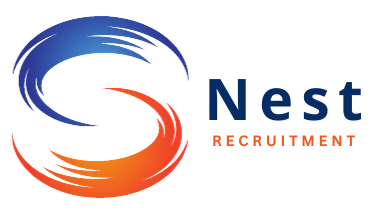Why personal care workers are the backbone of aged care: Insights from Nest Recruitment
Aged care is one of the most essential sectors of the healthcare system, providing support to some of the most vulnerable members of society. At the heart of this care are personal care workers (PCWs), the unsung heroes who ensure the daily well-being of elderly individuals. While doctors and nurses play critical roles, it is the personal care workers who often spend the most time with aged care residents, offering support that extends beyond physical health.
The critical role of personal care workers
Personal care workers provide essential support that enables elderly individuals to maintain dignity and quality of life. They assist with day-to-day tasks such as personal hygiene, mobility, meal preparation, and social activities. Their work is not only physically demanding but emotionally taxing, as they form close bonds with the people they care for.
These workers are the backbone of aged care, offering the hands-on care that keeps elderly residents safe, comfortable, and healthy. Their role is especially vital in residential care facilities, where the residents often require round-the-clock support.
The demand for compassionate, skilled workers
The demand for personal care workers is steadily increasing, especially as Australia's population ages. According to the Australian Bureau of Statistics, the proportion of the population aged 65 and over is expected to grow significantly in the coming decades. This means that the need for compassionate, skilled workers who can meet the unique needs of elderly individuals will only grow.
One of the challenges in the aged care sector is finding workers who are not only qualified but also genuinely passionate about their roles. Compassion, empathy, and patience are key traits for personal care workers, and these qualities are just as important as their professional qualifications.
How Nest Recruitment supports the aged care sector
Nest Recruitment recognises the importance of personal care workers and works diligently to source and place individuals who are passionate about aged care. The agency understands that the emotional and physical demands of the job require a special kind of person, which is why they prioritise candidates who demonstrate a genuine commitment to caring for the elderly.
By working closely with aged care facilities, Nest Recruitment ensures that the workers they place are the right fit for the job. Whether facilities are in need of short-term cover or long-term staff, Nest Recruitment has a wide network of qualified personal care workers who are ready to step in and provide exceptional care.
The future of personal care in aged care
As Australia's aged care sector continues to grow, personal care workers will remain at the forefront of providing essential support. With the increasing emphasis on person-centred care, the role of PCWs will become even more critical, as they are often the ones who develop the strongest relationships with residents.
Nest Recruitment is committed to ensuring that aged care facilities have access to the best possible talent. By placing skilled, compassionate workers, they help to maintain the high standards of care that elderly individuals deserve.











